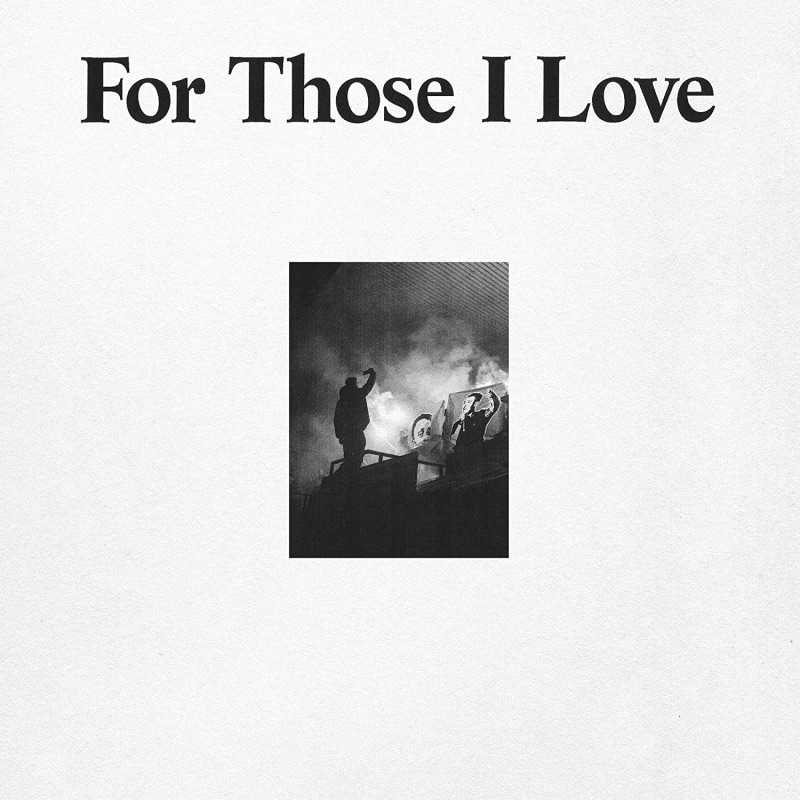
Every night on their last UK tour, The Murder Capital arrived onstage to the most striking of warm-up tunes.
Barely heard outside of Ireland, Dear James by the multimedia collective Burnt Out dealt with the suicide of a young man from north Dublin, its shards of noise the stark bones of a naked requiem.
The main instigators of Burnt Out were David Balfe and Paul Curran, both raised in the working class Dublin suburb of Coolock. From bonding over a mutual devotion to At The Drive-In at high school to raising each other’s perceptions of what art and performance could be, the pair formed a lifelong friendship.
Curran, at Balfe’s suggestion, grasped the nettle of spoken-word poetry, excelling in the form to the extent that his work and influence began to stretch well beyond the city’s confines.
Then, in 2018, Paul Curran too took his own life.
The effect on Balfe was understandably profound; the tragedy happened during the making of For Those I Love, and its psychological mushroom cloud is embedded in each syllable and note. (The Murder Capital have also said that every song on their album When I Have Fears relates to Curran’s passing in some way.)
What emerges from that furnace of grief is a record of such incredible honesty that it appears to be assembled from pieces of its creator’s soul.
Peppered with snatches of Curran’s voice salvaged from old WhatsApp messages, his almost constant presence as a muse – along with the long cultural shadow of Coolock itself – leads inevitably to the thought that this is as much the product of an active collaboration as any more orthodox project.
Maudlin? Never. Opener I Have A Love may begin with a solemn piano, but the words are about the inexplicable chemistry of friendship and the emotion of being connected at a fundamental level whilst the gently uplifting backbeat mimics a rave if St. Peter was on the decks.
These complex alloys would be uncomfortable if betrayed by even a hint of insincerity, but Balfe also chooses to face himself with just as much dispassion on The Myth / I Don’t and its portrayal of addiction as a door that swings both ways, the function of obliterating what makes you care confessed as something essential: ‘I don’t want to feel safe/I don’t want to feel free/All I feel is nothing/And right now that’s all I can be’.
There are some obvious parallels – Jamie xx’s warmly nostalgic patina, The Streets with all the early nougthies lad mag detritus worn off – but Balfe also explores what happens when the lights come up on The Shape Of You, a Smokey Robinson sampling recollection of waking up in a foreign hospital after breaking a leg.
Gradually the focus shifts from growing up at odds with outsider’s stigmatisation and how it leads to unbreakable bonds (Birthday / The Pain) to the gradual understanding that those same friendships can fix almost anything if allowed to (You Live / No One Like You).
Eventually the busted-up mess becomes somebody who can look at themselves in the mirror once more. This job of maintaining equilibrium is a day-by-day process explored on closer Leave Me Not Love, the track piled high with devices but which ends by cutting back through to the simplest of messages: that nobody deserves to ever get left behind.
There must be something about music, with its acute emotional resonances, that makes it such a perfect medium for projection.
On For Those I Love, David Balfe faces down anguish and hurt with songs so powerfully articulate, and with music so beautiful, that it becomes not a celebration of life and death but of life itself, a filter for the goodness of people, compassion as a generous act of selflessness.
You could write a thousand words about it. But it’s better just to listen.




